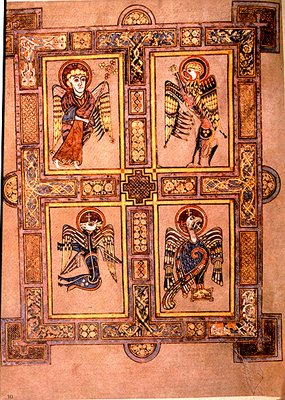The Gospel of Judas is Boring
What is the Gospel of Judas? What is Gnosticism?
The "Gospel of Judas" is what's called a "Gnostic Gospel." The Gnostics were early heretics who denied either the full humanity or full divinity of Christ. The word "gnostic" comes from the Greek word "gnosis" for "knowledge". Gnostics thought they had secret knowledge that would lead to salvation. Here's how to understand gnosticism: think "new-ager conspiracy theorist". The modern-day counterparts to the gnostics are the UFO freaks and the crystal gazers rolled together.
What do Gnostics "Gospels" claim?
Gnostics claim that they have the "real" story of Jesus. They usually involve really off-the-wall stuff like--forgive me if I don't match the whacko story to the right Gnostic gospel, it's been years since I last read them--Jesus making birds out of clay (Gospel of Thomas) or a giant talking cross coming out of the tomb (Gospel of Mary, no Peter I think (there are also spurious gnostic Gospels for Philip, Thomas, even Eve!). And of course being early conspiracy theories they always pick some figure close to Jesus and tell the "real" story about them, as in the Da Vinci code's story about Mary Magdalene being the real leader of the early Christians or the gospel of Judas portraying Judas a real stand-up guy who got some bad press. They also have your basic New Age gobbledygook. Read them (I highly recommend them, they're like comic books) and you'll see that there's nothing new about the New Age.
Why don't "Gnostic gospels" like the Gospel of Judas pose a threat to Catholics?
Because they are written too late to be of relevance. No one disputes that they were written around 130-170. One of my favorite Early Church Fathers Saint Irenaeus of Lyons mentions it in his book Adversus haereses (Against the Heresies) which was written around 180. In Book I, Chapter 31 he says "They declare that Judas the traitor was thoroughly acquainted with these things, and that he alone, knowing the truth as no others did, accomplished the mystery of the betrayal; by him all things, both earthly and heavenly, were thus thrown into confusion. They produce a fictitious history of this kind, which they style the Gospel of Judas." They are also completely anonymous with no tradition connecting them to earlier times. The depended on special revelations for their secret knowledge usually, not history.
In contrast, all of the canonical synoptic Gospels were written before the fall of Jerusalem in AD 70. Additionally, each is connected to some Apostle either as author or authorizer (for example we learn from Papias that the Gospel of Mark was written under the authority of Peter).

(The Four Evangelists from the Book of Kells)
Then why do the Press portray them as threatening?
Cha-ching! Sales baby, it's all in the numbers. Well not *all*, it's a plain fact that most journalists don't have a clue about historicity. They usually believe some version of the "pass it on" myth about the loss of the original message, which is complete poppycock. It is an axiom that the Catholic Church is an oppressive authoritarian institution, so that their condemnation of the heretical "gospels" is authorization suppression of a minority voice is a simply-derived theorem. They need to learn why Athanasius had the moniker "contra mundum"!
What should I do about it?
My recommendation is to read some gnostic Gospels. The gnostic "gospel" of Thomas is the most popular, so maybe start with that one. As soon as you get done with it--like immediately afterward--read through the canonical Gospels (it doesn't take that long). Comparing them back to back is very instructive. Then read the text of the gnostic "gospel" of Judas as soon as it comes out and do the same thing. If people jaw about it, invite them to do the same thing. Hype feeds off ignorance. Thus, Hype usually decreases in proportion to the decrease of ignorance.
Links
More than you could ever bear to know about Gnosticism
Blog by excellent New Testament Scholar (this guys is really good and credible).
Books by trained scholars:
The New Testament Documents: Are They Reliable?
Is The New Testament Reliable?
The Historical Reliability of the Gospels

2 Comments:
When you type "their like comic books" do you mean "they're like comic books"?
Yep, thanks. Corrected.
Post a Comment
<< Home